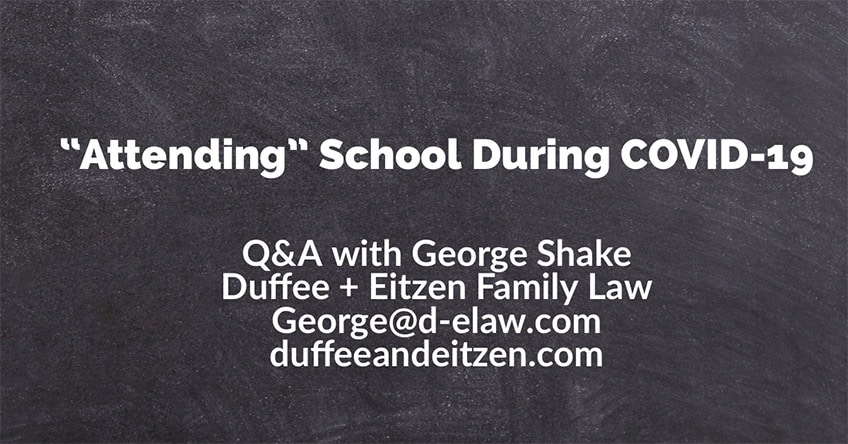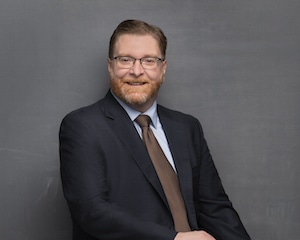“Attending” School During COVID-19, a Q&A with George Shake
Q: Will schools be taking attendance during COVID-19?
A: Yes, they have and will continue to do so.
Q: How does that work?
A: There are two different models: synchronous and asynchronous attendance. Synchronous attendance means good old fashion attendance. A student has to be “present” for instruction in real time to be counted present. In the upcoming school year, many schools are moving to this model regardless of whether students are present in the physical classroom, or participating remotely by videoconference. Asynchronous attendance means that a student is counted present if the student does the assigned school work for that day. This is regardless of where the student is located and regardless of what time of day the student does the assigned work. Most schools employed asynchronous attendance during shelter in place orders last school year.
Q: Do you anticipate any issues with this shift in how attendance will be taken?
A: Yes, there will be a few issues. First, some families will have difficulty providing students access to live videoconferencing each day for a variety of reasons. Some families have multiple children and limited access to devices and internet. Some families must work the student’s school work around adults’ work schedules and childcare options. Additionally, families with students with special needs may be particularly challenged. Some children with disabilities have significant cognitive, communication or behavioral issues that can make distance learning very difficult, or even impossible.
Q: Does this present any legal issues?
A: Yes, schools must provide every student a Free Appropriate Public Education (FAPE). If a child’s disabilities prevent that child from benefitting from distance learning, that child will very likely have to participate in in-person learning at the school with trained professionals. This is one of the issues with which I am currently helping a number of families. If you know someone who is in this situation, I would be happy to talk to them.
George Shake, a partner with Duffee + Eitzen, L.L.P., has been practicing law in the Dallas/Fort Worth area since graduating from the Southern Methodist University Dedman School of Law. He practices family law and special education law. George received undergraduate degrees in English Literature and Business from the City University of New York. George received a Master’s degree in School Psychology from the University of North Texas and became licensed to practice school psychology.
He worked with families directly for several years, assessing children and helping parents and schools to create educational programs for those children. George developed specialties in ADHD and Autism and has participated in countless special education meetings, discipline meetings, and teacher conferences. He has held administrative positions in several local public schools. He has written policies and trained school personnel to comply with federal and state regulations for serving children with special needs.George has been working on behalf of individuals with disabilities for twenty-five years and training professionals throughout the Dallas area for fifteen years. George’s work in family law often involves families with children with disabilities.

